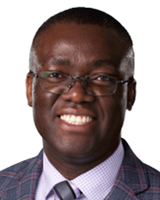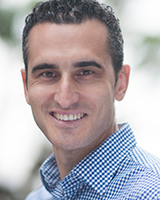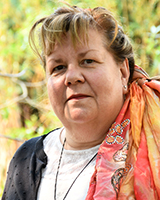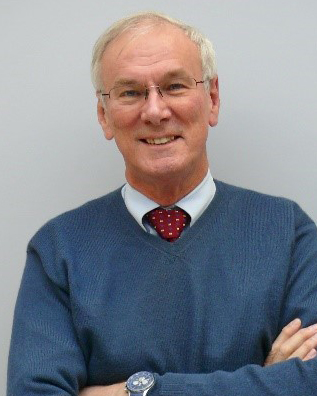ICRH Institute Advisory Board Members – Biographies

Dennis T. Ko, MD, MSc, FRCPC (Vice-Chair)
Professor, Department of Medicine, University of Toronto
Senior Scientist, Sunnybrook Research Institute
Senior Scientist, ICES
Interventional Cardiologist, Schulich Heart Centre, Sunnybrook Hospital
Dr. Dennis Ko obtained his MD from the University of Ottawa and completed medical residency at the Cleveland Clinic Foundation and cardiology fellowship at Yale University School of Medicine. He then completed interventional cardiology fellowship and Master of Clinical Epidemiology at the University of Toronto.
He is a Full Professor in the Department of Medicine at the University of Toronto, a Senior Scientist at the Sunnybrook Research Institute and at ICES. He works clinically as an interventional cardiologist at the Schulich Heart Centre at Sunnybrook Hospital. He is also the Research Program Director and the inaugural Jack Tu Research Chair for Cardiovascular Outcomes Research.
His research focuses on determining optimal clinical strategies and identifying opportunities for improvement in the prevention, treatment and outcome of cardiovascular disease. These research efforts are intended to provide critical information to improve the quality of health care, monitor changes over time, and guide decisions about the allocation of scarce health care resources. Dr. Ko has published more than 300 peer-reviewed publications. He is currently a leadership member in the American Heart Association Quality and Outcomes Committee.

Ejaife Agbani, BPharm, MSc, PhD
Assistant Professor, Physiology and Pharmacology, University of Calgary
Dr. Ejaife Agbani earned his Bachelor of Pharmacy degree (with Distinction) from Obafemi Awolowo University in Nigeria and qualified as a pharmacist. Later, he earned a master’s in clinical pharmacy degree (with Distinction) from University College London, England. He then studied peroxynitrite chemistry and its cellular actions in pulmonary hypertension at Strathclyde University in Glasgow, Scotland, where he obtained his PhD in 2010. After a post-doctoral research investigating the role of nuclear invaginations and endo-lysosomal channels in calcium signalling at the University of Edinburgh, Scotland, Dr. Agbani (in 2012) joined a platelet secretion lab at the University of Bristol, England. Here, Ejaife carved out an area of research combining 4D advanced imaging science with novel approaches targeting procoagulant membrane dynamics to control platelet procoagulation without blocking platelet secretions. Since then, Dr. Agbani’s work has centred on platelet biology, thrombosis and haemostasis cell biology, advanced imaging science, and haematological innovations. Dr. Agbani’s research seeks to understand platelets’ role in post-operative thrombo-haemorrhagic complications, drug and cancer-associated thrombosis, and prothrombo-inflammatory disease states. His research goal is to provide critical insights into thrombosis mechanisms and the haemostatic response through platelet biology and to leverage this knowledge for precision medicine.

Sudi Barre, BEc (she/her)
Edmonton, Alberta
Patient with Lived Experience, Wellness Coach
Key statement
Mother, wife, wellness and small business coach, expert in barriers to access to health care for minorities, woman with lived experience, advocate for sex and gender equity in care, speaker, blogger.
Lived experience
Person who experienced spontaneous coronary artery dissection and who is a heart and stroke survivor. Individual who has expert knowledge on navigating childhood trauma and complex post-traumatic stress disorder.
Professional experience
Consultant with 15+ years of expertise spanning organizational development; fostering community based ecosystems in community service agencies. Specialized in small business operational leadership and management.
Key areas of interest in advocacy
Equity-oriented health care. Patient-partnered inclusive care. Patient knowledge equity. Health research design, selection and convenience bias as well as sex- and gender-based analysis and reporting.
What I hope to bring to the Patient Voice
Passion for team collaboration. Commitment to work toward greater patient-partnered care. Dedication to ongoing learning and development.

Liam R Brunham
Assistant Professor, Medicine
UBC Centre for Heart Lung Innovation
The University of British Columbia
Liam Brunham is an Assistant Professor in the Department of Medicine at the University of British Columbia. He is an attending physician at the Health Heart Program Prevention clinic at St. Paul’s hospital, one of the largest specialty lipid clinics in Canada. Dr. Brunham’s research focuses on genetic aspects of cholesterol levels, cardiovascular disease (CVD), and pharmacogenomics. Active projects in his laboratory include SAVE BC, a long term study of families with early onset CVD; using genome-editing in human stem cells to study mechanisms of drug-induced cardiotoxicity; and studying the use of genetic testing for inherited dyslipidemias. Dr. Brunham is a Canadian Institutes of Health Research (CIHR) New Investigator and a Michael Smith Foundation for Health Research Scholar. In 2017, he was recognized as one of Canada’s Top 40 under 40.

Kerstin de Wit, MD
Associate Professor
Department of Emergency Medicine
Queen’s University, Kingston, Ontario
Kerstin de Wit works clinically as an emergency physician and a thrombosis physician in Kingston Health Sciences Centre. She is an Associate Professor in the Department of Emergency Medicine, cross appointed to the Department of Medicine. Her research focuses on testing for venous thromboembolism and intracranial bleeding in the emergency department environment.

Alexandra King, MD, FRCPC
Cameco Chair, Indigenous Health and Wellness, University of Saskatchewan
Dr. Alexandra King is a member of Nipissing First Nation (Ontario). She is an Internal Medicine Specialist with a focus on HIV/AIDS, hepatitis C (HCV) and HIV/HCV co-infections.
Alexandra is the Cameco Chair in Indigenous Health and Wellness at the University of Saskatchewan and co-leads Pewaseskwan (the Indigenous Wellness Research Group). She works with Indigenous communities and relevant stakeholders to understand the health and wellness needs of First Nations and Métis peoples and the structural changes needed for improved Indigenous health outcomes. Alexandra brings leadership skills in culturally safe and responsive research and care, reconciliation, etuaptmumk(Two-eyed Seeing), which brings together Indigenous and Western worldviews or forms of knowledge, and Ethical Space—which needs to be created when peoples with disparate worldviews engage with each other. She is a leader in developing Indigenous research methodology and was instrumental in the creation of the Indigenous Community Research Partnerships Training Resource through Queen’s University.
She serves on many initiatives, including the CIHR HIV/AIDS and STBBI Research Advisory Committee, the Canadian Network on Hepatitis C (CanHepC) and the Indigenous Peoples’ Engagement and Research Council (IPERC), which provides guidance to health research projects including the Cardiac Arrhythmia Network of Canada (CANet) and the Canadian Heart Function (CHF) Alliance, both of which Pewaseskwan is involved with. Another project she is involved with is research into spinal-bulbar muscular atrophy (SBMA), also known as Kennedy’s Disease, which impacts Indigenous people at much higher-than-average rates.
Alexandra supervises graduate students at Simon Fraser University and the University of Saskatchewan, focusing on wellness intervention research with Indigenous people in the areas of land-based healing, health determinants, mental health and addiction, blood-borne and sexually transmitted infections and justice health (prisoner health).

Indra Narang, BMedSci, MBBCH, MD
Professor of Paediatrics, University of Toronto
Senior Scientist, SickKids Research Institute
Associate Chair, Faculty Development, Equity, Diversity and Inclusion, Hospital for Sick Children
Dr Indra Narang completed medical school in the UK following which she undertook paediatric respiratory fellowship training at the Royal Brompton Hospital and Great Ormond Street Hospital, U.K. and Sleep medicine training at the Children’s Hospital of Philadelphia. She completed her research training and doctoral thesis at the University of London, U.K. In 2007, she was appointed as Faculty in the Division of Respiratory Medicine and Director of Sleep Medicine at the Hospital for Sick Children.
Dr Narang is nationally and internationally recognized for her paediatric sleep leadership in both the clinical and research arenas where she was the paediatric lead and an executive member of the Canadian Sleep and Circadian Network. Her current research focuses on innovative diagnostics for childhood obstructive sleep apnea (OSA) as well as the evaluation of effective and novel therapeutic interventions for the management of OSA. She has published more than 100 peer-reviewed papers and her translational research program in sleep disorders in children has generated evidence that has resulted in excellence in clinical care. Dr Narang’s lab supports many graduate and postgraduate trainees and is currently funded by CIHR as well as the PSI foundation.
In 2019, Dr Narang was appointed as the inaugural Associate Chair of Faculty Development, Equity, Diversity and Inclusion (EDI). In this role, Dr Narang has been instrumental in using a data driven approach for capacity building and implementing strategies that foster a diverse and inclusive environment in clinical care and research and her work was recently published in NEJM.

Mireille Ouimet
Scientist, Director, Cardiovascular Metabolism and Cell Biology Laboratory, University of Ottawa Heart Institute
Associate Professor, Department of Biochemistry, Microbiology and Immunology, Faculty of Medicine, University of Ottawa
Mireille Ouimet, PhD, is a Scientist and Director of the Cardiovascular Metabolism and Cell Biology Laboratory at the uOttawa Heart Institute and an Associate Professor in the Department of Biochemistry, Microbiology and Immunology, in the Faculty of Medicine at the University of Ottawa. Her research program aims to determine the role of lipophagy in macrophage foam cell metabolism, inflammation and cholesterol trafficking and its linkage to the development and progression of atherosclerosis. Dr. Ouimet holds a Tier 2 Canada Research Chair in cardiovascular metabolism and cell biology.
Dr. Ouimet obtained her BSc and PhD in biochemistry from the University of Ottawa. During her doctoral studies with Yves Marcel, PhD, at the Heart Institute, Dr. Ouimet made several important findings relevant to the cellular pathways of cholesterol removal from foam cells. Her most significant contribution was the discovery of autophagy as a key pathway for macrophage cholesterol efflux.
As a postdoctoral fellow with Kathryn Moore, PhD, at New York University, a notable leader in the fields of innate immunity and atherosclerosis, Dr. Ouimet broadened our understanding of mechanisms leading to predominance of classical M1 inflammatory macrophages in atherosclerotic plaques, cellular cholesterol trafficking and the persistence of M. tuberculosis bacilli in alveolar macrophages.
Dr. Ouimet was awarded a CIHR Vanier Canada Graduate Scholarship and received the Governor General’s Gold Medal in 2011 for her doctoral thesis in recognition of her graduate work, and is the recipient of several presentation awards. She has been recognized by the American Heart Association’s ATVB Council with awards such as the Early Career Award for Outstanding Research and New York University’s Outstanding Postdoctoral Scholar Award. Dr. Ouimet joined the Heart Institute in March 2017. In 2018, Dr. Ouimet received the Daniel Steinberg Early Career Investigator Award, and the CIHR-Canadian Society of Atherosclerosis, Thrombosis and Vascular Biology Early Career Lecturer Award. In 2020, Dr. Ouimet was awarded the Canadian Cardiovascular Society, HSRLCE, BI-Lilly Cardiometabolic Award.
Dr. Ouimet’s program is funded by NSERC, the Canadian Institutes of Health Research, the Heart and Stroke Foundation, and the Canada Foundation for Innovation.
Dr. Ouimet’s research program focuses on cellular cholesterol trafficking and the role of autophagy in macrophage foam cell metabolism, inflammation and lipid homeostasis and how modulating these pathways might be used to treat heart disease.

Melissa J. Parker
Associate Professor of Pediatrics
McMaster University
Dr. Parker completed her MD degree at Western, followed by postgraduate clinical training at the Hospital for Sick Children in Toronto. She is Board Certified in Pediatrics, Pediatric Emergency Medicine, and Pediatric Critical Care Medicine. Dr. Parker completed her research training in Health Research Methodology at McMaster University where she is now an Associate Professor of Pediatrics and an Associate Member of Health Research Methods, Evidence, and Impact (HEI).
Dr. Parker’s clinical and research interests focus on pediatric acute care including resuscitation interventions and algorithms, resuscitation quality improvement, and the ethical conduct of resuscitation research. She is an active member of the Canadian Critical Care Trials Group (CCCTG), Pediatric Emergency Research Canada (PERC), and the Canadian Resuscitation Outcomes Consortium (CanROC) research networks. Dr. Parker’s research program ‘Code Sepsis’ is focused on defining and translating optimum resuscitation and care for children with septic shock. She is currently leading a CIHR-funded multicentre RCT investigating two different fluid resuscitation strategies for septic shock, and she is engaged in translational and qualitative research collaborations.
One of Dr. Parker’s interests is the mentorship and support of early career researchers. She is fortunate to have been supported to date by career awards from Canadian Blood Services, the Canadian Institutes of Health Research, the Canadian Child Health Clinician Scientist Program, and Hamilton Health Sciences. Dr. Parker currently serves as the McMaster Centre Leader for the Canadian Child Health Clinician Scientist Program.

Grace Parraga
Tier 1 Canada Research Chair and Professor
Division of Respirology, Department of Medicine; Department of Medical Biophysics
Western University
Dr Parraga’s lab is focused on developing a deep understanding of chronic lung disease using novel imaging methods, in patient-based research. The overarching goal of her team’s research is to discover, validate and clinically translate magnetic resonance imaging (MRI) biomarkers while generating the evidence to support the clinical use of lung MRI to change asthma and COPD patient outcomes. Her lab is home to 20 trainees and staff and she has trained over 100 students and fellows in the past 13 years.
Dr Parraga completed her BSc and MSc at Western University and a PhD at the University of Washington in Seattle, Washington. Upon completing post-doctoral studies (funded by MRC Canada) at the University of Basel, (Switzerland), she joined F. Hoffman La Roche AG as a Scientist in Pharmaceutical Research and Development (Switzerland). After working in the private sector and research administration for 14 years, she returned to academic research at Robarts Research Institute and Western University.
Her lab’s work has been extensively published with more than 80 peer-reviewed papers in the last 5 years in the highest impact medical physics, imaging and respiratory/physiology journals; 15 contributions were highlighted in Editorials, Journal Covers or podcasts because of their significance and impact. Her lab is currently funded by the Heart and Stroke Foundation (Canada), Canadian Institutes of Health Research as well as Natural Science and Engineering Research Council (Canada) Discovery, Research Tools and Accelerator awards. She was recently nominated by Western University for a Tier 1 Canada Research Chair in Lung Imaging to Transform Patient Outcomes.

Kara Patterson, PT, PhD
Physiotherapist, Associate Professor, Department of Physical Therapy, University of Toronto
Senior Scientist, KITE-Toronto Rehabilitation Research Institute
Lead, RELEARN Lab
Kara Patterson is a physiotherapist, an Associate Professor in the Department of Physical Therapy at the University of Toronto, and a Senior Scientist at the KITE-Toronto Rehabilitation Research Institute. Kara practiced clinically in the neurological field in Canada and the US before completing her PhD at the University of Toronto and postdoctoral training at McGill University. She leads the RELEARN lab which strives to advance neurorehabilitation practice in order to improve mobility outcomes for people living with neurological conditions, and in particular stroke. Her research interests include motor learning and rehabilitation of gait and balance using novel strategies including rhythm-, music- and dance-based interventions. Kara’s work is supported by the Heart and Stroke Foundation and the Canadian Institutes for Health Research. Her work has also been recognized with a Clinician Scientist personnel award from the Heart and Stroke Foundation and the Innovation and Advancement award from the Ontario Physiotherapy Association.

Andrew Pipe
Clinician-Scientist, University of Ottawa Heart Institute
Professor, Faculty of Medicine, University of Ottawa
Dr. Andrew Pipe graduated from Queen's University in 1974. Formerly Chief of the Division of Prevention and Rehabilitation at the University of Ottawa Heart Institute, Dr. Pipe is a Professor in the Faculty of Medicine at the University of Ottawa. Dr. Pipe continues his clinical and research activities within the Division.
He is currently involved in clinical research assessing new approaches to smoking cessation, strategies designed to facilitate exercise adoption, and novel initiatives to prevent cardiovascular disease.
Dr. Pipe has addressed audiences in over 30 nations and is frequently consulted on issues related to tobacco use and smoking cessation, drug use in sport, and physical activity and health. In addition to his clinical responsibilities, Dr. Pipe has been extensively involved in sports and sport medicine for many years. Dr. Pipe served as a physician at 12 Olympic Games and has been the Team Physician for Canada's National Men's Basketball Team since 1978. A member of the Canadian Olympic Hall of Fame, he served as Chair of the Canadian Centre for Ethics in Sport from its inception until 2003.
Dr. Pipe is the recipient of the International Olympic Committee's Award for "Sport, Health and Wellbeing" and honourary degrees from Queen's University (LLD), Brock University (DSc) and University of Guelph (DSc). He was formerly Vice Chairman of the Board of Trustees at Queen's University. In 2002, he was named to the Order of Canada.

Nishita Singh, MD, DM, MSc
Stroke Neurologist
Assistant Professor, Neurology, University of Manitoba
Clinical Stroke Research Chair, Heart & Stroke & Research Manitoba
Dr. Nishita Singh, a stroke neurologist and clinical researcher at the University of Manitoba, is an Assistant Professor and the Heart & Stroke & Research Manitoba Chair and the Research Manitoba Chair in Clinical Stroke Research. Dr. Nishita Singh completed her medical education and neurology residency at the All India Institute of Medical Sciences. From 2019 to 2022 she held a stroke fellowship at the University of Calgary, where she was recognized as chief stroke fellow. Singh has published extensively in the area of stroke treatment and has been involved in large clinical trials such as the AcT Trial, which led to change in clinical guidelines within Canada and globally for treatment of patients with acute stroke. In Calgary, Singh received the 2021 Foothills Medical Centre Physician of the Year Award for a resident or fellow, recognizing her outstanding contributions during the pandemic. She was the fellow lead for the Canadian Stroke Consortium and currently is the Deputy Chair- Research for the Canadian Stroke Consortium. She is a principal investigator on StrokeCog, an equity, diversity, inclusivity and accessibility-centred training platform funded by the Canadian Institutes of Health Research. StrokeCog is developing a new generation of diverse stroke clinical trial leaders, with the goal of conducting more inclusive trials. She is also principal investigator for a study on carotid disease funded by Brain Canada. She is the site principal investigator for several large clinical trials. Her primary interest is in carotid artery disease, which encompasses multiple disease states like narrowing or tearing within the carotid artery, increasing the risk of stroke across all ages. She envisions running a large, real-world clinical trial related to carotid artery disease.

Charles Tam
Director of Regulatory Affairs & member of Canadian Leadership Team, Edwards Lifesciences
Charles Tam is the Director of Regulatory Affairs and a member of Canadian Leadership Team at Edwards Lifesciences in Canada. He joined Edwards Lifesciences in 2014 and previously held progressive regulatory leadership roles at Abbott Laboratories, Johnson & Johnson Medical Companies, and Becton-Dickinson and Company Inc.
Bridging experiences across academia, government, and the private-sector, Charles is passionate about enabling greater access to clinical research and medical technology innovation for all Canadians. He is a Sub-Committee Chair and Regulatory Affairs Steering Committee member at MedTech Canada, and is an Advisor at the University of Toronto's Health Innovation Hub (H2i), part of the Temerty Faculty of Medicine. Previously, he has served as a Councillor on the Coronary Artery and Vascular Disease council at the Heart and Stroke Foundation of Canada, previously retained on the roster of experts for Investigational Testing by Health Canada's Health Products and Food Branch, and previously served as an elected Senator on the Toronto Metropolitan University's Senate (formerly Ryerson University).
Charles obtained his MBA at the Toronto Metropolitan University (formerly Ryerson University) and holds a Honours BSc from the University of Toronto.
- Date modified: